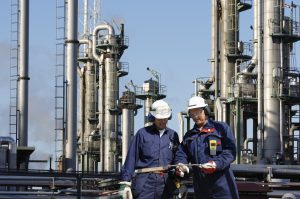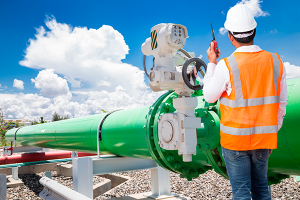Risks in the Hydrocarbons Sector
A risk, according to the Law of the National Agency for Industrial Safety and Environmental Protection of the Hydrocarbons Sector (ASEA), is the probability that an undesired event will occur, measured in terms of its consequences to personnel, to the population, to facilities and equipment and the environment. In short, a risk is the probability of an accident occurring.
In this regard, it is important to consider that “risk” is not synonym to “danger”, since the latter refers to the intrinsic conditions or characteristics of an object capable of causing harm, while the risk is the probability of that damage occurring. From the above it follows that there are situations and objects that are dangerous themselves and therefore have the potential to cause harm, that is, they represent a risk, which however can be controlled and minimized.
In terms of hydrocarbons, oil and gas are hazardous materials, given their explosive and flammable characteristics. Therefore, the activities in which they are involved represent a risk, hence they are legally defined as highly risky activities.
In addition to the intrinsic characteristics, the operations carried out throughout the hydrocarbon value chain are highly complex, since 1) they involve large-scale infrastructure: drilling platforms, ship-tanks, pipelines, storage terminals, others; 2) are carried out in conditions that may be extreme, for example, drilling an oil well in the sea or traveling long distances through a ship or a train; 3) Advanced technology and specialized personnel are required.
Derived from the above, it is necessary to take all the measures in risk management to avoid accidents from happening. However, although a risk can be prevented and controlled, it can not be eliminated completely, so in any case, it will be necessary to transfer it, with the aim of preventing a company from absorbing the total economic losses that a loss may represent and that they can translate into a significant patrimonial detriment.
A risk can be transferred to an insurance company, through an insurance contract in which the insurer is committed to the insured, who in return for a premium, will indemnify him in case he suffers a loss that causes losses economic, as long as the event corresponds to the insured object, conforms to the terms and conditions established in the policy and is not an exclusion.
In the SectorHydrocarbons Sector, there are specific insurances to cover the risks inherent to this activity, which have also been established as mandatory by the regulatory authority (ASEA), such as: 1) Well control; 2) Civil Liability and 3) Environmental Responsibility.
At NRGI Broker, we are experts in insurance for the Hydrocarbons Sector. Come to us.



